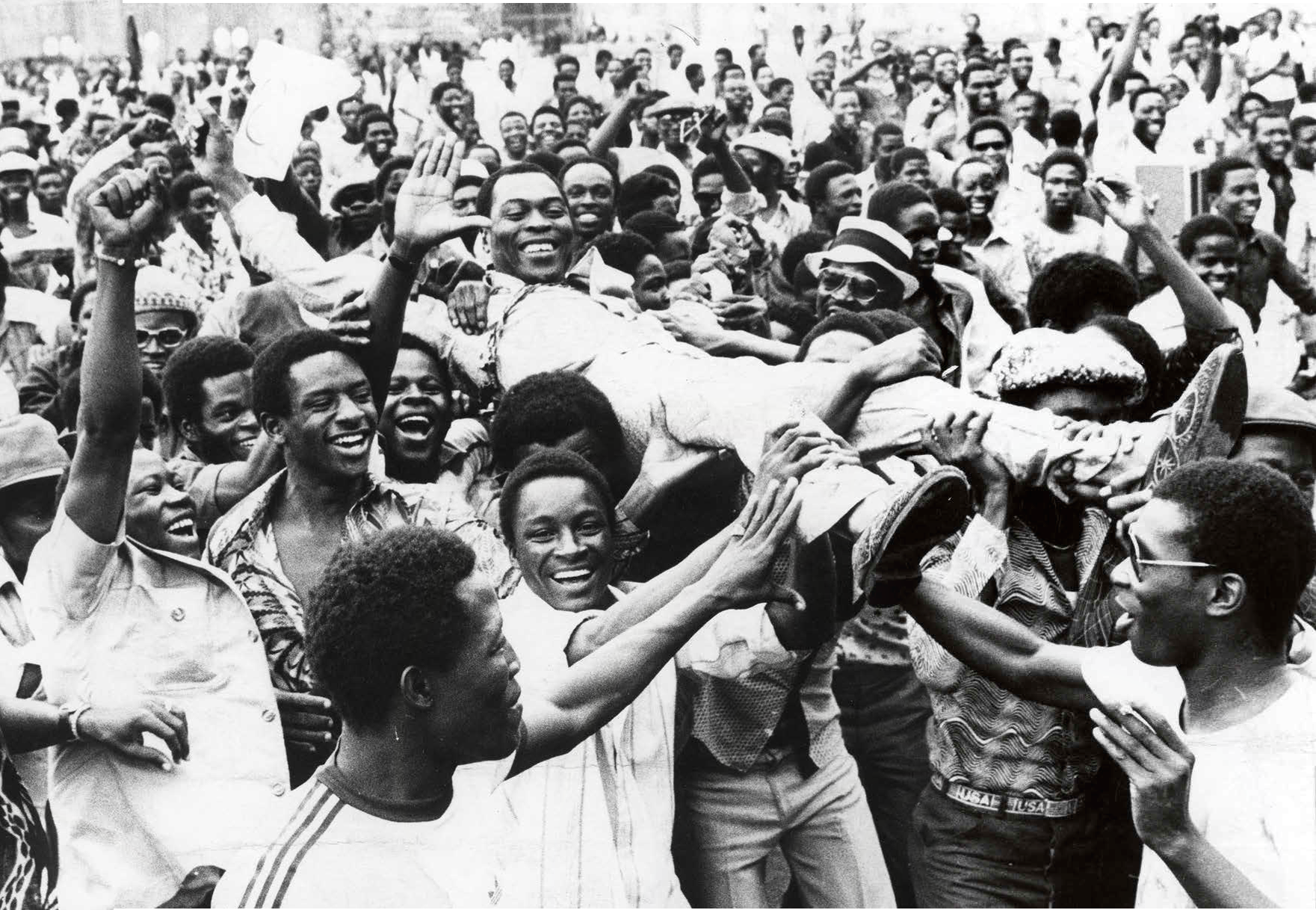
Afrobeat as a weapon against oppression of the masses was Fela’s vision and in a way, his life work.
This was the role he saw for the music, when he visited the US in the late 60s. In a global context of intense capitalism and economic oppression, leaders in post-independence Sub-Saharan Africa were increasingly installed puppets creating intrigues, corruption but no development.
His band was going to provide the platform, the funds, and he was personally going to bear the cross, such that his entire life was reduced or amplified by this struggle. Some band members were frustrated as they had musical ambitions of their own.
Between 1963 and 1970, Fela had cut records with RK, Philips, Polydor, HMV and Duke Records, under two names; Fela Ransome Kuti and His Koola Lobitos and Fela Ransome Kuti and His Nigeria 70. After his musical studies at Trinity College London, he returned to Lagos to reform his band. But it was not until 1965 with the insertion of new members that things begun to take off. Tony Allen (drums), Tunde Williams (Trumpet), Christopher Uwaifor (Tenor Sax), Lekan Animashaun (Baryton Sax) and Henry Koffi (Percussions).
Don Kemonah, Ezekiel Hart, Isaac Olashugba were also members of Koola Lobitos pre-1970 but left in the early 70’s to found The Don Isaac Ezekiel Combination.
Sometime early 1970, the was a brouhaha at the gates of EMI Nigeria. Odion was called to the intervene. A gentleman dressed casually was the centre of attention
Fela: “Are you Odion Iruoje?”
Odion: “Yes I am, how can I help?”
Fela: “I am Fela Ransome-Kuti, I need to see you”
Security: “We have orders not to let him in”
Odion: “Orders from whom?”
Security: “From MD sir!”
Odion: “Take him to my office”
Fela then proceeds to talk of his new sound, his tone was a mix of pride and a touch of salesmanship. “You have to hear it mehn it’s different”, Odion opined, I’m interested but you know why you are blacklisted.
Fela wincing, “this is different, Odion baba!! Talk to your guy..”.
Odion: “give me a minute”
Odion walks to MD’s office.
EMI MD: “He’s a nightmare to deal with, no regard for contracts… look I want nothing to do with him. As long as you handle him…”
Odion walks out.
Odion: “Ok bring the band on Monday, we’ll talk after I hear this … new sound”
Fela: “Odion baba!!! You de man ojaré, right on!”
Monday morning in Lagos, 11am,
Musicians all around, mics are ready.
Fela: “Ah one, two …”
The band is blasting the intro to “Blackman’s Cry”. Odion watches in disbelief. Fela is smiling. The building is shaking, the engineers are laughing and dancing. The house is rocking.
Odion’s Office, 1230pm
Fela: I need a van for carrying our gear, tired of being ripped off by those morafokin’ drivers mehn! Also need a personal car, also instruments, quality stuff…”.
Odion: “One thing at a time. Let’s cut the record and release it first.”
Fela: “Odion baba, mark my words, it will be a morafokin’ hit…” “Thats why I need a global company, to take this sound around the world…”.
Blackman’s Cry/Beautiful Dancer was released as a 7” single in 1970, it sold OK. But the next year, Jeun Ko Ku Part 1/Part 2 was released as a single. It was a massive hit, it sold so many copies EMI Nigeria became profitable that year.

